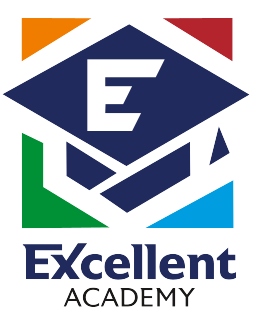National Council Licensure Examination
Uddish Visa Hub training programs can bring you a super exciting experience of learning through online! You never face any negative experience while enjoying your classes virtually by sitting in your comfort zone. Our flexible learning initiatives will help you to learn better and quicker than the traditional ways of learning skills.

NCLEX
The NCLEX exam, also known as the National Council Licensure Examination, is a standardized test that every state regulatory board uses to determine if a candidate is ready to become licensed as a nurse. Administered by the National Council of State Boards of Nursing, there are two types of NCLEX exams, and which test you take depends on the role you seek.
The NGN launched on April 1, 2023 to better measure nursing candidates’ clinical judgment and decision making abilities through the use of innovative item types.
Next Gen NCLEX Changes: Conceptual Changes
According to the NCSBN, clinical judgment is linked to 46% of all tasks performed by entry-level nurses, but, recent research has identified a lack of clinical judgment ability amongst novice nurses. Medical errors are the third leading cause of death in the United States, and only one-fifth of employers are satisfied with new nurses’ decision-making ability.
In an effort to remedy these trends, the Next Gen NCLEX will seek to measure clinical judgment ability. As the NCSBN researched and developed the exam, it operationally defined “clinical judgment” as “the observed outcome of critical thinking and decision-making…an iterative process that uses nursing knowledge to:
- Observe and assess presenting situations
- Identify a prioritized client concern
- Generate the best possible evidence-based solutions to deliver safe client care”
Next Gen NCLEX Changes: New Scoring System
The Next Generation NCLEX also has an updated scoring system. The previous version of the exam used a dichotomous scoring method, meaning NCLEX items were scored as either correct or incorrect. Moving forward, the NGN will use a polytomous scoring method to allow for partial credit on certain items. This new scoring system allows for more precise measurement and takes into consideration the complexity of the new NGN item types.
Next Gen NCLEX Scoring: Partial Credit
- Partial credit on the Next Gen NCLEX can be assigned in three ways:
- +/- Scoring: Test-takers receive one point for correct responses and lose a point for incorrect responses. If the total score is negative, the final score will be “0.”
- 0/1 Scoring:Test-takers receive one point for correct responses but don’t lose points for incorrect responses.
- “All or Nothing” Scoring: Test-takers receive “all or nothing” credit for linked units within an item, meaning it’s either all correct or all incorrect
- The NCLEX-RN exam frames its entire syllabus with a fair, comprehensive, current, and entry-level nursing competency measurement. The syllabus can be briefly categorized in the following topics:
- Safe effective care environment
- Health promotion and maintenance
- Psychosocial Integrity
- Psychological Integrity
- In addition to clinical reasoning and critical thinking, the NCLEX-RN test plan also assumes that the nurse integrates concepts from the following bodies of knowledge:
- Social Sciences (psychology and sociology)
- Biological Sciences (anatomy, physiology, biology and microbiology)
- Physical Sciences (chemistry and physics).
- In addition, the following concepts are applied throughout the four major client needs categories and subcategories of the test plan:
- Nursing process
- Caring
- Communication and documentation
- Teaching and learning
- Culture and Spirituality
- Physiological Integrity
38-62% Of All Nclex Questions Includes Basic Care And Comfort, Assistive Devices, Elimination, Mobility/immobility, Non-pharmacological Comfort Interventions, Nutrition And Oral Hydration, Personal Hygiene, Pharmacological Therapies, Adverse Effects, Blood Products, Cvads, Pads, Dosage Calculations, Expected Outcomes, Medication Administration, Tpn, And More!
- Safe And Effective Care
26-38% Of All Nclex Questionsincludes Advanced Directives, Advocacy, Delegation, Case Management, Client Rights, Collaboration, Concepts Of Management, Confidentiality, Continuity Of Care, Prioritization, Ethical Practice, Informed Consent, Information Technology, Legal Rights, Referrals, And More.
- Health Promotion And Maintenance
6-12% Of All Nclex Questionsincludes Aging Process And Considerations, Ante/intra/postpartum And Newborn Care, Developmental Stages And Progression, Health Promotion/disease Prevention, Health Screening, Lifestyle Choices, High Risk Behaviours, Self Care, And Techniques Of Physical Assessment.
- Psychosocial Integrity
9% Of All Nclex Questions Includes Behavioural Interventions, Abuse Assessments, Coping Mechanisms, Crisis Interventions, Spirituality, Self Care, Grief And Loss, Family Dynamics, End-of-life Care, And More.
NCLEX Education for Studying: Staying Focused on Your NCLEX Journey
Begin by establishing clear goals for your NCLEX preparation. Work closely with your NCLEX Education coach to define specific objectives tailored to your needs. Together, you can create a customized study schedule that accommodates your summer plans, ensuring you have dedicated time for focused studying while still enjoying the season
Begin by establishing clear goals for your NCLEX preparation. Work closely with your NCLEX Education coach to define specific objectives tailored to your needs. Together, you can create a customized study schedule that accommodates your summer plans, ensuring you have dedicated time for focused studying while still enjoying the season
NCLEX Education offers mock test exams that simulate the actual NCLEX experience. These practice exams are invaluable for assessing your readiness and identifying areas for improvement. Incorporate these mock exams into your study routine to gauge your progress, build confidence, and familiarize yourself with the exam format. Review your results with your coach to develop targeted strategies for enhancing your performance
NCLEX Education offers mock test exams that simulate the actual NCLEX experience. These practice exams are invaluable for assessing your readiness and identifying areas for improvement. Incorporate these mock exams into your study routine to gauge your progress, build confidence, and familiarize yourself with the exam format. Review your results with your coach to develop targeted strategies for enhancing your performance
Balancing activities and NCLEX preparation requires effective time management. Collaborate with your NCLEX Education coach to design structured study sessions that fit your schedule. Break down your study material into manageable segments and allocate dedicated time to tackle challenging topics. Use time management techniques like the Pomodoro Technique to maintain focus and maximize productivity

While studying for the NCLEX, it's crucial to prioritize self-care to sustain focus and motivation. Take care of your physical and mental well-being by engaging in regular exercise, eating nutritious meals, and getting sufficient rest. NCLEX Education recognizes the importance of self-care and encourages you to celebrate milestones along your journey. Acknowledge your progress, no matter how small, and reward yourself with breaks or enjoyable summer activities to maintain a positive mindset.
Staying focused on studying for the NCLEX during the summer can be a challenge, but with the support of NCLEX Education's personalized resources, you can strike a balance between your academic goals and enjoying the season. By setting clear objectives, utilizing 1:1 coaching sessions, leveraging mock test exams and supplementary study materials, managing your time effectively, and prioritizing self-care, you'll be equipped to succeed in your NCLEX preparation. Remember, with NCLEX Education as your partner, you can confidently navigate through summer distractions while staying focused on your journey towards becoming a registered nurse.

Examination Length
All registered nurse (RN) candidates must answer a minimum of 85 items. The maximum number of items that an RN candidate may answer is 150 during the allotted five-hour period. Of the minimum-length examination, 52 of the items will come from the eight content areas listed above in the stated percentages. Eighteen of the items will comprise three clinical judgment case studies. Case studies are item sets composed of six items that measure each of the six domains of the NCSBN Clinical Judgment Measurement Model (NCJMM) mentioned earlier: recognizing cues, analyzing cues, prioritizing hypotheses, generating solutions, taking action and evaluating outcomes. Since clinical judgment is an integrated process, the case studies will span any number of content areas and are therefore counted independently of the content-area-specific items. The remaining 15 items will be unscored pretest items. The five-hour limit to complete the examination includes all breaks.
The length of the examination is determined by the candidate’s responses to the items. Depending upon the particular pattern of correct and incorrect responses, candidates will receive different numbers of items and therefore use varying amounts of time. The candidate should select and maintain a reasonable pace that will allow them to complete the examination within the allotted time should the maximum number of items be administered. In general, it is recommended that the candidate spend approximately one to two minutes per item in order to maintain this pace.
Each candidate is given an examination that adheres to the test plan and is therefore given the opportunity to demonstrate their ability. The length of the candidate’s examination is not an indication of a pass or fail result. A candidate may pass or fail regardless of the length of the examination. Additional information on passing and failing rules is included in further detail in this section.


